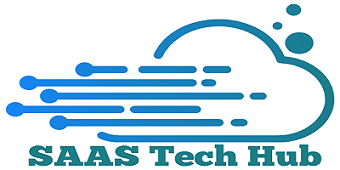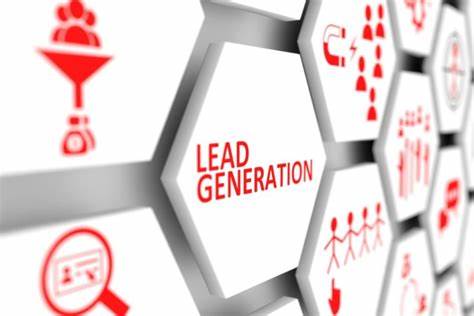Becoming a lead generation expert requires dedication and skill. It’s about turning potential customers into loyal clients.
Lead generation is vital for any business. It helps attract and convert prospects into leads. As competition grows, mastering lead generation becomes more crucial. Understanding the strategies and tools available can set you apart. In this blog, we will explore the steps to become a lead generation expert.
You’ll learn practical tips and gain insights to enhance your skills. Ready to dive in? Let’s get started.
Introduction To Lead Generation
Lead generation is essential for businesses seeking growth. It’s the process of identifying and attracting potential customers. These customers are known as “leads.” By mastering lead generation, businesses can convert leads into loyal customers.
What Is Lead Generation?
Lead generation involves creating interest in your products or services. It attracts potential customers and converts them into leads. This process includes various marketing strategies.
Some common methods are:
- Email marketing
- Content marketing
- Social media marketing
- Search engine optimization (SEO)
These strategies help attract potential customers. They also collect information to follow up with these leads.
Importance Of Lead Generation
Lead generation is crucial for business growth. It helps identify potential customers. These leads can turn into sales and revenue.
Here are some reasons why lead generation is important:
| Reason | Description |
|---|---|
| Increases Sales | More leads mean more potential sales. |
| Improves ROI | Effective lead generation boosts return on investment. |
| Builds Brand Awareness | Lead generation improves your brand’s visibility. |
| Targets the Right Audience | Focuses efforts on those interested in your products. |
Lead generation also helps build relationships with potential customers. It allows businesses to understand their audience better. This leads to more personalized marketing efforts.
Essential Skills For Lead Generation
To become a lead generation expert, you need specific skills. These skills help you attract and convert potential customers. This section covers the essential skills for lead generation.
Communication Skills
Effective communication is crucial for lead generation. You must convey your message clearly. Listening skills are also important. Understand what your potential leads need. This helps in creating personalized messages.
Being able to build relationships is another key aspect. Engage with your audience. Build trust. This increases the chance of converting leads into customers. Regular follow-ups show your commitment and keep the leads warm.
Analytical Skills
Analytical skills help you understand data. Data shows you what works and what doesn’t. You can use tools like Google Analytics. Track the performance of your campaigns. Identify patterns and trends.
Make data-driven decisions to improve your strategy. Measure key metrics like conversion rates and lead quality. This helps in refining your approach. Always test and optimize your campaigns for better results.
Building Your Lead Generation Strategy
Building an effective lead generation strategy is crucial for any business. It helps in attracting potential customers and converting them into loyal clients. To achieve this, you need to focus on key aspects such as identifying your target audience and creating compelling lead magnets.
Identifying Target Audience
Identifying your target audience is the first step. It’s essential to know who you are trying to reach. This will ensure that your efforts are directed towards the right people.
- Demographics: Age, gender, income, education level, etc.
- Geographics: Location, climate, urban/rural.
- Psychographics: Interests, values, lifestyle.
- Behavioral: Purchase behavior, brand loyalty, usage rate.
Knowing these details helps in creating targeted campaigns. This increases the chances of generating quality leads.
Creating Lead Magnets
Lead magnets are incentives offered in exchange for contact details. They are crucial in lead generation. High-quality lead magnets attract and engage potential customers.
Examples of effective lead magnets include:
- Ebooks: Provide valuable information on a specific topic.
- Whitepapers: Offer in-depth insights and research data.
- Webinars: Host live sessions to educate and engage.
- Discounts: Offer special deals for a limited time.
- Free Trials: Let potential customers try before they buy.
Ensure your lead magnets are relevant and valuable. This will increase their effectiveness in capturing leads.
| Lead Magnet | Purpose | Effectiveness |
|---|---|---|
| Ebooks | Provide detailed knowledge | High |
| Whitepapers | Share expert research | High |
| Webinars | Interactive learning | Medium |
| Discounts | Encourage purchases | Medium |
| Free Trials | Allow testing products | High |
Incorporate these elements into your strategy. They help in effectively capturing and converting leads.
Using Technology For Lead Generation
To become a lead generation expert, leveraging technology is essential. Modern tools streamline processes, enhance efficiency, and yield better results. Two crucial categories of tools are CRM and marketing automation platforms.
Crm Tools
Customer Relationship Management (CRM) tools are vital for managing leads. They help organize, track, and nurture leads effectively. Popular CRM tools include:
- Salesforce
- HubSpot
- Zoho CRM
These tools offer many features. They include contact management, email tracking, and reporting. A CRM system can store vast amounts of data. This data helps in personalizing communication. It allows sales teams to target leads with precision.
Using a CRM, you can:
- Track lead interactions.
- Monitor sales pipeline.
- Automate follow-ups.
All these actions boost the chances of converting leads into customers.
Marketing Automation
Marketing automation tools simplify repetitive tasks. They help in managing campaigns and generating leads. These tools include:
- Mailchimp
- Marketo
- Pardot
These tools automate email marketing, social media posting, and more. They save time and ensure consistent communication.
Key features of marketing automation tools are:
| Feature | Description |
|---|---|
| Email Campaigns | Automate email sequences for lead nurturing. |
| Lead Scoring | Assign scores based on lead behavior and engagement. |
| Analytics | Track campaign performance and ROI. |
By using marketing automation, you ensure that every lead receives timely, relevant content. This enhances the chances of converting leads into loyal customers.
Content Marketing For Lead Generation
Content marketing is vital for lead generation. It involves creating valuable content to attract and convert prospects into leads. Effective content marketing engages your audience and builds trust. You can use different types of content to reach potential leads. Two key strategies include blogging and social media.
Blogging
Blogging is a powerful tool for lead generation. Write posts that address your audience’s pain points. Use relevant keywords to improve search engine ranking. Each post should provide value to the reader. Include a clear call to action (CTA) in every blog post. This guides the reader to take the next step. Consistent blogging establishes your expertise in the field. It also keeps your audience coming back for more insights.
Social Media
Social media platforms are excellent for reaching potential leads. Share your blog posts on social media channels. This increases visibility and drives traffic to your website. Engage with your audience by responding to comments and messages. Create and share content that resonates with your followers. Use visuals, like images and videos, to make your posts more appealing. Social media also allows for targeted advertising. This ensures your content reaches the right audience.

Credit: www.leadfuze.com
Email Marketing Tactics
Email marketing is a powerful tool for lead generation. It helps businesses connect with potential clients directly. In this section, we will explore two essential tactics: Segmentation and Personalization. These tactics can significantly enhance your email marketing efforts.
Segmentation
Segmentation involves dividing your email list into smaller groups. Each group shares common characteristics. This could be based on demographics, purchase history, or engagement levels. Segmenting your list allows you to send more relevant content to each group.
For example, you might create segments based on:
- Age
- Location
- Past purchases
- Email engagement
Here is a simple table to illustrate different segmentation criteria:
| Segment | Criteria |
|---|---|
| New Subscribers | Subscribed in the last 30 days |
| Inactive Users | No interaction in the last 90 days |
| Frequent Buyers | More than 3 purchases |
By segmenting your list, you can tailor your messages. This increases the chances of engagement and conversions.
Personalization
Personalization goes hand in hand with segmentation. It involves customizing your emails to make them more relevant to each recipient. Personalized emails have higher open and click-through rates.
Some ways to personalize emails include:
- Using the recipient’s name in the subject line and body
- Referencing past purchases or interactions
- Offering personalized product recommendations
- Sending personalized birthday or anniversary emails
Here is an example of a personalized email:
Subject: Hi [FirstName], special offers just for you!
Dear [FirstName],
Thank you for being a loyal customer. Based on your recent purchase of [Product], we thought you might like these similar items:
- [RecommendedProduct1]
- [RecommendedProduct2]
- [RecommendedProduct3]
Best regards,
[Your Company]
Personalization makes your emails feel more individual and valuable. This can lead to better engagement and more leads.
Measuring And Analyzing Results
Measuring and analyzing results is a crucial part of becoming a lead generation expert. This process helps you understand what works and what doesn’t. By focusing on the right metrics and making necessary adjustments, you can improve your strategies and achieve better results.
Key Metrics
To measure success in lead generation, track key metrics. These include conversion rate, click-through rate, and cost per lead. The conversion rate shows how many visitors turn into leads. The click-through rate reveals how many people click your ads or emails. The cost per lead tells you how much you spend to gain each lead.
Other important metrics are website traffic and lead quality. Website traffic shows how many visitors your site attracts. Lead quality measures the potential value of your leads. High-quality leads are more likely to become paying customers.
Adjusting Your Strategy
Once you have measured key metrics, use the data to adjust your strategy. If your conversion rate is low, test different landing pages or calls to action. If your click-through rate is low, try new ad copy or images. Adjusting your strategy helps you find the best methods for your audience.
Regularly review your metrics and make necessary changes. This helps you stay ahead of the competition and meet your goals. Being flexible and responsive to data ensures continuous improvement in your lead generation efforts.

Credit: www.risefuel.com
Advanced Lead Generation Techniques
Becoming a lead generation expert involves mastering advanced techniques. These strategies help you capture and convert leads more effectively. This section covers two key techniques: AB Testing and Retargeting.
Ab Testing
AB Testing, also known as split testing, compares two versions of a webpage or an email. This technique helps you identify which version performs better. Here’s how to do it:
- Create two versions (A and B) of your content.
- Change one element in version B (e.g., the headline).
- Show version A to half your audience and version B to the other half.
- Track key metrics such as click-through rates and conversions.
Use the data to decide which version is more effective. This process helps you optimize your lead generation efforts.
Retargeting
Retargeting is a technique where you target users who have already interacted with your site. These users are more likely to convert. Follow these steps to implement retargeting:
- Install a retargeting pixel on your website.
- Segment your audience based on their behavior (e.g., visited a product page).
- Create ads tailored to each segment.
- Show these ads to the relevant audience on various platforms.
Retargeting keeps your brand in front of potential leads. This increases the chances of conversion.
Building A Lead Generation Team
Creating a successful lead generation team is crucial for any business. It involves assembling individuals with specific skills and aligning them towards a common goal. A well-structured team can significantly boost your lead generation efforts. Below, we’ll explore the key aspects of building a lead generation team.
Roles And Responsibilities
Each team member should have a clear role. The primary roles include the lead generation manager, content creator, data analyst, and sales representative. The lead generation manager oversees the entire process and ensures the team meets its goals.
The content creator crafts engaging content to attract potential leads. The data analyst tracks and analyzes lead data to optimize strategies. The sales representative converts leads into customers. Defining these roles helps streamline the lead generation process.
Training And Development
Continuous training is essential for a lead generation team. Regular workshops and training sessions keep the team updated with the latest trends. New tools and techniques emerge frequently in lead generation. Staying informed helps the team remain competitive.
Developing a culture of learning within the team is vital. Encourage team members to share knowledge and insights. This collaboration fosters a more dynamic and efficient lead generation process. Investing in training and development pays off in the long run.

Credit: popl.co
Frequently Asked Questions
What Skills Do You Need For Lead Generation?
To excel in lead generation, you need strong communication, analytical, and marketing skills. Being tech-savvy and understanding customer behavior is also crucial.
How Can I Generate Quality Leads?
Generate quality leads by using targeted marketing strategies, leveraging social media, and offering valuable content. Use analytics to refine your approach.
What Tools Help In Lead Generation?
Essential tools for lead generation include CRM software, email marketing platforms, and analytics tools. Social media management tools are also useful.
How Important Is Content Marketing In Lead Generation?
Content marketing is vital for lead generation. It attracts, engages, and converts potential leads by providing valuable and relevant information.
Conclusion
Becoming a lead generation expert takes time and effort. Focus on learning key skills. Practice consistently. Use data to refine strategies. Engage with your audience. Always stay updated with trends. Success comes with patience and persistence. Keep improving your techniques.
Your expertise will grow. Reach your goals step by step. Lead generation expertise is within your grasp.



Leave a Reply